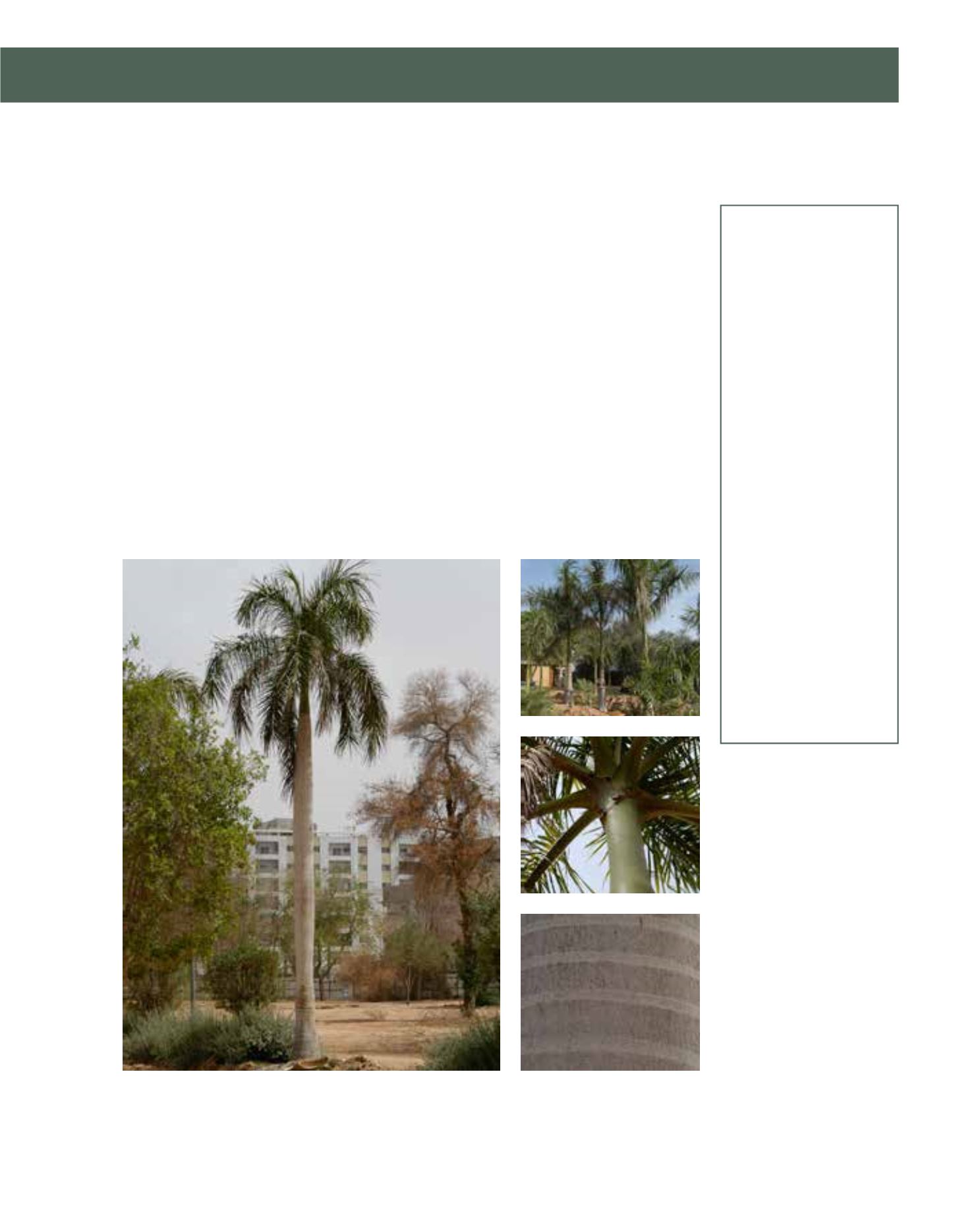

GENERAL
Origin
:
tropical
Vigour
:
normal growth
rate
Humidity
:
very humid,
extremely humid
Propagation :
sowing and
pricking out
Maintenance :
moderate
CONDITIONS
Urban climate :
vulnerable
Dessication :
vulnerable
Stagnant water :
vulnerable
Irrigation
:
high
Salinity/ppm :
moderate (3000
ppm)
Hardiness
:
0°C
SHAPE
Type
:
palms
Height
:
15 m-30 m
Spread
:
5 m-9 m
Foliage
:
evergreen
FLOWER
Colour
:
white, pale
yellow, light
brown
Size
:
150 cm
Period
:
June - August
FRUIT
Type of fruit :
drupe
Fruit size
:
1.5 cm
The Royal Palm, native to Florida, Mexico and the Caribbean, has been planted throughout the
subtropics and tropics as an ornamental tree. This tall and beautiful palm once lined an avenue
in Arriyadh’s oldest park, the Foutah Gardens, just south of Murabba. The Royal Palm grows to
a height of 20–30 metres with a spread of 9 metres; its trunk, up to 50 cm in diameter, has cha-
racteristic swellings, just below the long, bright-green crown shaft from which the large feathery
leaves emerge, and a lesser bulge at the base. The smooth, light-grey bark has rings where the
fronds once were. Arching, pinnate leaves, which can be up to 4 m long, are a lush green. The
panicles of white flowers in summer are followed by small, berry like fruits, purplish-black when
ripe. R. regia prefers deep, fertile, well-drained, neutral soil and full sun. Frost-tender, it with-
stands short periods of cold, but may be killed by temperatures below –4ºC. It requires regular
irrigation, but should never stand in water. Propagation is from small, round seeds. Being fast-
growing, Royal Palms are highly recommended for roadside planting, on boulevards, ceremonial
driveways and parks. Owing to their size, they are not suitable for small gardens. A disadvantage
is that trees let large leaves snap off in order to reduce wind resistance, which can be a hazard.
Maintenance is intensive, since Royal Palms are susceptible to many insects. especially palm leaf
skeletonisers, palmetto weevils and Royal Palm bug. The fungus ganoderma will also quickly kill
trees.
262
Roystonea regia,
Arecaceae
Cuban Royal Palm
















